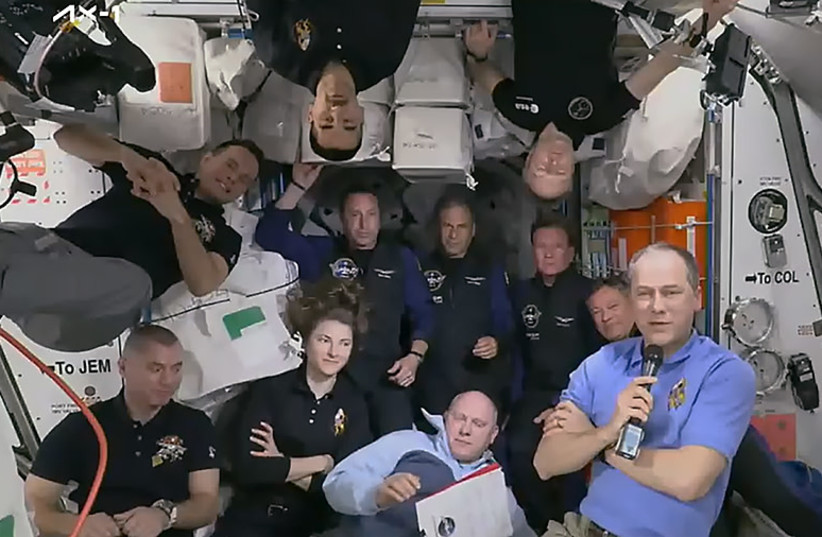Eytan Stibbe, Israel’s second astronaut, bade farewell to the International Space Station (ISS) on Tuesday as his brief stay in space comes to a close.
He and his fellow astronauts aboard Axiom’s Ax-1 mission were scheduled to return to Earth on Wednesday but weather conditions appear to have forced a delay.
The 64-year-old astronaut was sent to the ISS last week as part of Israel’s Rakia mission, which saw Stibbe conduct 35 Israeli experiments ranging across a wide variety of fields, including testing or demonstrating the viability of certain technologies, observing scientific phenomena, studying mechanisms of theorized concepts and groundbreaking tests on food and agriculture.
In a farewell ceremony on Tuesday afternoon, Stibbe discussed his time in space and said he was pleased with the “impressive and unique” international collaboration onboard the ISS.
“We learned a lot,” Stibbe said. “I feel like I’m just getting started, and I’m ready to stay here for another month or so.” He wished those watching the ceremony from home a happy Passover holiday.
Ax-1, led by Houston-based start-up Axiom Space in partnership with SpaceX and NASA, is a historic moment for science and space travel. While other private space ventures like Jeff Bezos’s Blue Origin and Richard Bramson’s Virgin Galactic focus heavily on space tourism, the Ax-1 mission is entirely science-focused, and is the first to send an all-civilian crew to the ISS to make use of its designed purpose: an orbital laboratory.

Indeed, it is being seen by many – especially the three companies involved in Ax-1 – as a major step in expanding commercial activity in space.
Stibbe and the rest of the four-person Ax-1 mission were originally set to depart earlier Tuesday. However, poor weather conditions delayed the undocking until around 10:00 p.m. EST (5:00 p.m. Wednesday Israel time). The capsule is expected to splash down on Earth on Wednesday no earlier than 3:24 p.m. EST (10:24 p.m. Israel time).
